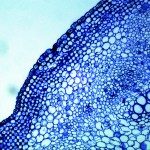Link to Pubmed [PMID] – 21618349
Hum. Mutat. 2011 Jun;32(6):643-52
Toll-like receptors (TLRs) are considered an essential component of the innate immune system, initiating inflammatory responses following infection of the host. Humans have 10 functional TLRs, differing in their subcellular distributions and the microbial agonists they sense. The phylogenetically conserved TLR1-2-6 family is unique in that TLR1 and TLR6 form heterodimers with TLR2 to mediate signalling in response to agonists. Epidemiological genetic studies have identified several TLR variants that appear to influence susceptibility to infectious diseases, but the functional consequences of which remain largely unknown. Here, we assessed the functional impact of the TLR1-2-6 variants with altered amino acid sequences segregating naturally in the human population. We used an NF-κB reporter assay in TLR-transfected human embryonic kidney 293T cells stimulated with the corresponding TLR agonists. We found that among the 41 naturally occurring variants with amino acid alterations identified in the TLR1-2-6 family, 14 of them (five TLR1, four TLR2, and five TLR6 variants) displayed marked impairment of NF-κB activation. Most of these variants are present at very low population frequencies and are population-specific. These observations suggest that rare, nonsynonymous TLR mutations are likely to have deleterious effects on immune responses and may therefore contribute to complex susceptibility to infection at the population level.

